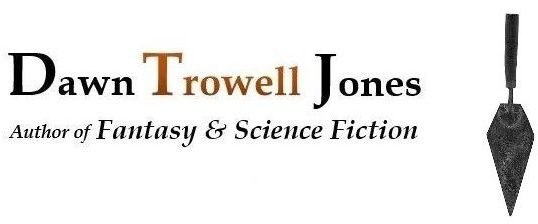 As I said in my last blog post (a rant, sorry about that), for a couple of months now, my mission has been to try to cut my contemporary hard fantasy novel, The Long Last of Mary B. Tate: Waking the Witch, down from 183,000 words (610 pages at 300/words per page) to 150,000 (500 pages). Well, I did cut it down, a lot, but didn’t like the results, so now it’s back at 179K (597 pages).
As I said in my last blog post (a rant, sorry about that), for a couple of months now, my mission has been to try to cut my contemporary hard fantasy novel, The Long Last of Mary B. Tate: Waking the Witch, down from 183,000 words (610 pages at 300/words per page) to 150,000 (500 pages). Well, I did cut it down, a lot, but didn’t like the results, so now it’s back at 179K (597 pages).

This is an epic story. It doesn’t want to be less. I wanted this story for future people like me, middle-aged or approaching middle-age, who might be clawing their way out of a very low place, and I wanted them to recognize their world, not a child’s world, but with hope for a new beginning in a dangerous adult world of moral ambiguities, pressures, and missed connections, and to feel the excitement of something special happening, something coming together. A chance to start over.
That’s where I am. The good news is, even at 179K, I’ve had two agents ask for first pages after pitching to them at Writer’s Digest’s Atlanta Writers Workshop (hosted by Broadleaf Writer’s Association).
Obviously, traditional publishing and working with an agent appeals to me. But even if these agents don’t “bite,” my efforts will not have been in vain – I can take what I’ve learned and pitch Mary B. Tate to other agents, or perhaps… even publish it myself.
Last Saturday, I attended a Broadleaf seminar on self-publishing. Most of the presenters were genre writers. Some were strictly self-published, while others were what we call “hybrids.” If you don’t know, hybrid authors self-publish some books and traditionally publish others, alternating between the two, or were first published one way but have since decided the other route works best for them.
I’ve read compelling fiction from both traditional and self-published authors, but I’ve also come across fiction from both that was not what it needed to be, though those were mostly works from self-published authors. Sounds harsh, but it’s honestly how I feel.
So what do I want for me? You may be an author asking yourself the same question. Below are a few concerns I’m weighing in case it’s helpful to you. Or maybe you’re just a curious reader.
I’ve talked it over with author friends and others near-and-dear to me and come to the conclusion that I have two primary career goals: to produce meaningful, high-quality art in the form of stories and to increase productivity. I expect this to be my life’s work.
That said, traditional or self-publication — which will it be? Which will help me further both goals?
Prestige: What does traditional offer out-the-gate that self-publication does not? Prestige. Why? Because of its selectivity. Some readers want gatekeepers. Others don’t. But readers who don’t like gatekeepers will find they have to do a lot of sifting, so basically, most will still wind up looking for gatekeepers in some form, just ones they trust better than the major publishing houses. Unexpected obstacles to book promotion turn up, too. I’ve heard that some marketing events only allow authors to promote books that have been traditionally published. Other marketing events will allow authors with self-published books but only if they’ve been professionally edited.
Craft Development and Shared Vision: I’ve heard it said many times that the traditional route can be a wonderful experience for an author if she has the right agent. I believe this. But authors and their agents must be careful that they share each other’s vision, if not as friends, at least as partners. Right? Collaboration tends to yield better results than compromise. Self-published authors, though, should keep in mind that they face some the same issues of compatibility when they work with professional editors — and this is something they definitely should do.
 Time Expenditure: Sending out queries takes a tremendous amount of time and effort that could be spent creating and editing new works – for example, I have four other projects going. And then, it’s demoralizing to think the first thing the agent notices about my book is its length, closely followed by the fact I’m in the early stages of my career and have what is called a “small platform.” Publishers, too, want to know a book’s length and the size of an author’s platform before anything else, and so, although I’ve only sent queries to little more than a handful of agents, I’m sure most of them have probably tossed my query back into the slush pile without ever having read what the story was about. Some don’t ever respond — just crickets. Not fun! But to my surprise, one of the top agents in my genre emailed me back immediately, within the hour – even though this was a rejection, it was that rare personal rejection with a little advice, a kindness I’ll never forget.
Time Expenditure: Sending out queries takes a tremendous amount of time and effort that could be spent creating and editing new works – for example, I have four other projects going. And then, it’s demoralizing to think the first thing the agent notices about my book is its length, closely followed by the fact I’m in the early stages of my career and have what is called a “small platform.” Publishers, too, want to know a book’s length and the size of an author’s platform before anything else, and so, although I’ve only sent queries to little more than a handful of agents, I’m sure most of them have probably tossed my query back into the slush pile without ever having read what the story was about. Some don’t ever respond — just crickets. Not fun! But to my surprise, one of the top agents in my genre emailed me back immediately, within the hour – even though this was a rejection, it was that rare personal rejection with a little advice, a kindness I’ll never forget.
Integrity of the Work: Because publishers care about length, even an agent who loves my story will be looking for a way to break it up. Trust me, I’ll listen to whatever an agent has to say – I’d be a fool not to. But if an agent thinks she can sell it without breaking it up, this would be a major inducement for me to choose her.
Professional Results, Control, and Costs: Two reasons why authors want agents: (1) expertise and (2) access. These authors want to sign on with a major publishing house. They want a major publishing house because of its expertise in putting out a polished, professional book that gets notice and its access to booksellers, the public, and most of the more prestigious awards. For this team effort, traditional-publication authors are willing to sacrifice earnings and a measure of control.
A reputable agent only makes money if the author does, and these earnings come as a percentage of royalties. The publisher, the one who pays the royalties, may or may not pay an “advance,” which the author usually must pay back out of these same royalties. An advance is a kind of insurance policy for the author and an incentive to the publishing house to make sure it does everything it can to recoup that cost. But from what I’ve read and heard, authors should consider an offer of an advance very carefully. If too high, it can seriously damage an author’s career when the book doesn’t earn it back.
 With that in mind, here’s the thing about self-publishing: in self-publishing, the author maintains control, but the author must pay for everything up front. Everything comes out of the author’s pocket. The author shoulders all the risk. An exception: the author may choose to pay a subcontractor in royalties instead of cash if the subcontractor allows it — but I’ve only heard of this being done with audio-book narrators, nowhere else.
With that in mind, here’s the thing about self-publishing: in self-publishing, the author maintains control, but the author must pay for everything up front. Everything comes out of the author’s pocket. The author shoulders all the risk. An exception: the author may choose to pay a subcontractor in royalties instead of cash if the subcontractor allows it — but I’ve only heard of this being done with audio-book narrators, nowhere else.
When a self-published author uses Amazon or another online distributor to put her work out there, the distributor gets a cut of the book’s gross revenue, off the top. For this reason, some will avoid these distributors, but that’s not practical for most self-published authors. However, these distributors also get a cut from traditionally published books sold on their platforms — so probably not a big difference there, when you think about it. My impression is that most books these days are sold through these online distributors, and so, bottom line, interestingly, regardless of the mode of publication, the author’s payout come last. Except in the case of an advance. But even then, when you look at it in a certain light, regardless of whether the author goes with the traditional or self-published route, the author still pays for everything, it’s just a matter of how and when and scale. That is, unless the advance isn’t earned out (i.e., cashing in on the insurance policy) – but as stated, that’s definitely not what an author wants.
Self-Marketing: Regardless of mode, authors still have to participate in social media and market their work. Traditional publishing will not excuse us from that. But this can be a positive experience, connecting with people — I really think so — even though it can be a little bit of a productivity drain for us introverts since it’s not quite who we are.
Here’s another positive “team” angle the self-published presenters on the panel brought up: if a reader tells an author there’s a flaw in her book, from typos on up to plot-holes, the self-published author can take the book down and fix it. The traditional-published author cannot. This freedom-to-fix creates a different sort of dynamic, doesn’t it, between author and reader?
But what about the money? Last year, I met my first agent in person, a seasoned agent with a long successful career in the business. I did a terrible job of pitching to her. Seriously. It was laughably bad. After a few random suggestions as to how to bring the word count down, she said: “Because then we can sell your book, and you can make lots of money. That’s what you want, right? Lots of money!” This was shocking to me. True, after editorial feedback, an agent’s job is to sell the book – to love it and sell it with love. There’s nothing wrong (and a lot right) about an agent thinking in terms of maximizing profit, but this was not where I was coming from. Money’s not what inspires me to create — which is my job. If all I wanted was money, my legal career would have been the more sensible choice. Oh, but I do want money. Don’t get me wrong. Money is how society tells us we’ve contributed something it values. We want to be paid our worth.
But society doesn’t always get that right, does it? Teacher pay is one huge, glaring example. What I wonder is if comparable quality can earn relatively the same either way, whether traditional or self-published. If that’s the reality, then the issue for me as an author might be productivity versus distraction – to maximize the quality of my work.
 Art is about self-expression, sure, but also exchange — i.e., exposure. It requires an audience of some kind to fulfill its purpose. For authenticity and to please myself, I wrote a book I would read if someone else had written it. But to travel beyond me, it must be more than “palatable” to others: it must satisfy a need, and for that to happen, they must hear about it and want to read it.
Art is about self-expression, sure, but also exchange — i.e., exposure. It requires an audience of some kind to fulfill its purpose. For authenticity and to please myself, I wrote a book I would read if someone else had written it. But to travel beyond me, it must be more than “palatable” to others: it must satisfy a need, and for that to happen, they must hear about it and want to read it.
After I’ve done all I can do, which way will be the best way to reach others? Where are my people? People like me, they’re consumers, a little picky, but fairly quiet about it. If they like my work, do they care whether it’s traditionally published or self-published? How can they get a sense of its quality quickly and reliably? How will they find me? As for me and my life’s work here, what’s the best way to enhance my craft and increase productivity? This is where I’m left wondering, and why for now my thoughts will have to remain unfinished.
Thank you for dropping by! I appreciate you!
